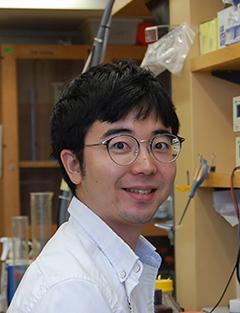-
About
- Departments & Offices
-
Academics
- Public Health
- Biomedical Sciences
- Physician Assistant
- Special Master’s (MBS)
-
Admissions & Financial Aid
- Tuition & Fees
-
Student Experience
-
- Student Resources by Program
- Academic & Student Support
- Wellness & Wellbeing
- Student Life
- Events & Traditions
-
-
Research
- Research Labs & Centers
- Tufts University-Tufts Medicine Research Enterprise
-
Local & Global Engagement
- Global Health Programs
- Community Engagement

Research/Areas of Interest
I am using a mouse model of bacterial lipopolysaccharide (LPS)-toxicity to better understand why humans are several orders of magnitude more sensitive to LPS than mice. One possibility is that humans are more sensitive to Tumor Necrosis Factor (TNF) – the main mediator of LPS-toxicity in mice. It is also possible that such a dramatic difference is conferred by the differences in the cellular makeup in circulation in mice and men. To test these hypotheses, I am using a MOLF strain of the evolutionary diverse wild-derived mice that are highly resistant to LPS despite being hyper-responsive to LPS in vitro. Using the high correlation between LPS lethality and body temperature changes, I am going to identify cytokines that are more highly associated with lethality and search for genetic differences in MOLF strains that are the cause of these changes. A high level of genetic diversity facilitates forward genetic analysis of these traits.
Education
- DDS, Niigata University, Niigata, Japan
- PhD, Dental Medicine, Niigata University Graduate School of Medical and Dental Sciences, Niigata, Japan